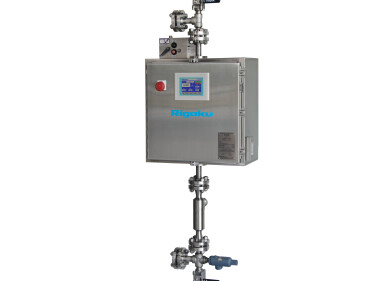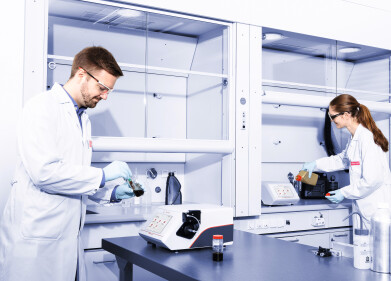Measurement and Testing
What is ASTM D6304?
May 04 2021
Water content can have a significant impact on the function and performance of petroleum products, including lubricants, base oils, additives, hydrocarbon solvents and automatic transmission fluids. Developed by one of the largest voluntary standards organisations in the world, ASTM D6304 was launched to help scientists determine H2O levels in petroleum products.
Defining ASTM D6304
ASTM International, a global standards organisation that develops voluntary technical benchmarks for a wide range of industries and applications, defines ASTM D6304 as the following:
“This test method covers the direct determination of entrained water in petroleum products and hydrocarbons using automated instrumentation. This test method also covers the indirect analysis of water thermally removed from samples and swept with dry inert gas into the Karl Fischer titration cell.”
Why water content matters
Predicting the quality and performance characteristics of petroleum products is one of the most important functions of the ASTM D6304 testing method. Knowledge of water content not only affects the manufacturing process but can also influence performance and price.
Excess moisture can fast-track corrosion and wear, an issue that affects both petroleum product manufacturers and consumers. Water can compromise lubrication properties and as a result lead to an increase in debris. As well as increasing friction and hindering mechanical performance, this can also clog filters and reduce the lifespan of machinery and equipment.
High levels of H2O can also prevent the actions of additives, which are designed to improve performance and enhance the properties of petroleum products. If additives are compromised so too is the value of the product. ASTM D6304 testing also helps to reduce the risk of bacterial growth, which is triggered by excess water.
Introducing coulometric Karl Fischer (KF) titration
Coulometric Karl Fischer (KF) titration, an advanced and highly accurate technique used to detect water in non-aqueous solvents, is central to ASTM D6304 testing. Invented in the 1930s by a pioneering German chemist, today the technology is used in laboratories around the world.
Ensuring accuracy
To ensure reliable and accurate results it’s essential to monitor traces of compounds such as mercaptan, sulphide and sulphur. All can interfere with the ASTM D6304 test method and compromise outcomes.
Want to know more about how ASTM D6304 is evolving? Michael Margreth, a scientist at Swiss-based laboratory instrument manufacturer Metrohm, discusses the latest advances, as well as the basic working principle of coulometric Karl Fischer titration in ‘New ASTM D6304 – improved water content determination in lubricants and other petroleum products.’
Digital Edition
PIN 25.5 Oct/Nov 2024
November 2024
Analytical Instrumentation - Picturing Viscosity – How Can a Viscometer or a Rheometer Benefit You? - Sustainable Grease Formulations: Evaluating Key Performance Parameters and Testing Method...
View all digital editions
Events
Nov 27 2024 Istanbul, Turkey
Biogas Convention & Trade Fair 2024
Nov 27 2024 Hanover, Germany
Dec 03 2024 Dusseldorf, Germany
Dec 08 2024 Anaheim, CA, USA
Turkey & Black Sea Oil and Gas
Dec 11 2024 Istanbul, Turkey



















